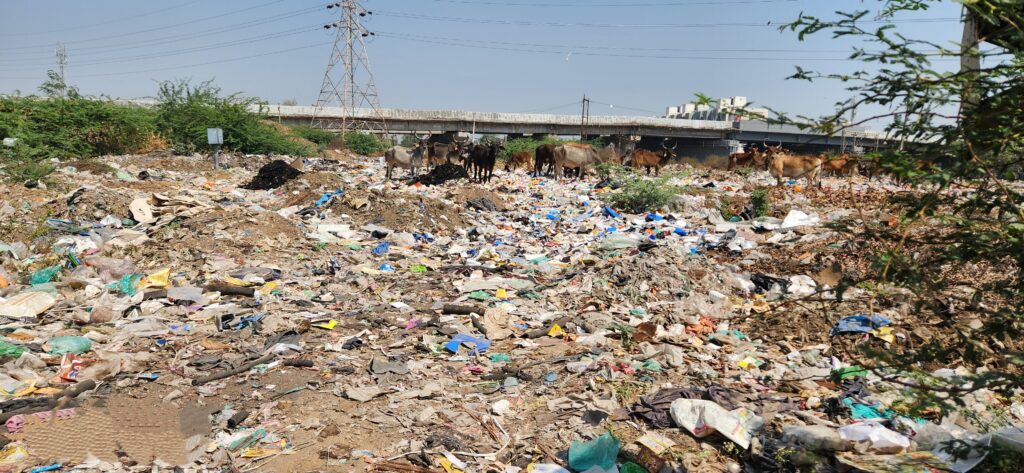
4,440 Indian cities generated more than 58 million tonnes of solid waste in 2020-21
Sadly, no one knows how much solid waste was generated by 2,64,645 gram panchayats consisting over five lakh ninety-four thousand villages!!
waste is not just an urban phenomenon
Solid Waste is considered an urban issue and may be it was. However, even today, pending a population census, we can safely say that about 50% of India still resides in its villages. With increasing disposable incomes, higher smartphones and internet penetration, these villages are increasing their consumption expenditure at a faster pace compared to their urban counterparts (as also seen in the recent NSSO survey – Household Consumption Expenditure Survey 2022-23).
Urban areas are densely populated, but with about 50% population residing in rural areas and rising consumptions, waste generation affects everyone. As the waste is considered a more urban phenomenon, the rural areas have had to do with less (of budget, equipment, qualified administrators) when it came to waste management. While the Swachh Bharat Mission – Grameen (SBM-G) has given some impetus to the waste management in rural areas, its focus has more been on making villages Open Defecation Free (ODF) through provision of sanitary toilets.

Are we failing our villages?
As peri-urban and outgrowth areas increase in size, the boundaries between urban and rural areas are blurring. Unlike cities where Urban Local Bodies (ULBs) have the manpower and other capacities owing to large budgets, the gram panchayats are not ill-equipped. The villages are dealing with their wastes by either burning them, or putting them aside on a community land and then when it piles up, to dig a ditch and bury it. Imagine all kinds of wastes being buried in the soil. Slowly but steadily the villages are burying themselves in waste just like the cities have already done! The liquid waste including the grey and black water are conveniently routed to a nearby pond or a river if it happens to pass nearby.
…and all of this can change
Paper Ball Educational Innovation aims to ensure that villages become self-sustainable in managing their solid waste. We seek to raise awareness in the villages and help gram panchayats with their capacity building to ensure that all village waste is taken care of in a sustainable manner. Even today, a single village with a population of about 2000 people, produces far less waste then what a ward in a city might generate. Villages are apt for practicing decentralised waste management models and we aim to work with villages and authorities to bring about the awareness regarding the current status of waste management on the ground, and then to work on building processes and structures with the stakeholders to ensure the villages do not go the city way, at least when it comes to creating mountains of waste.

